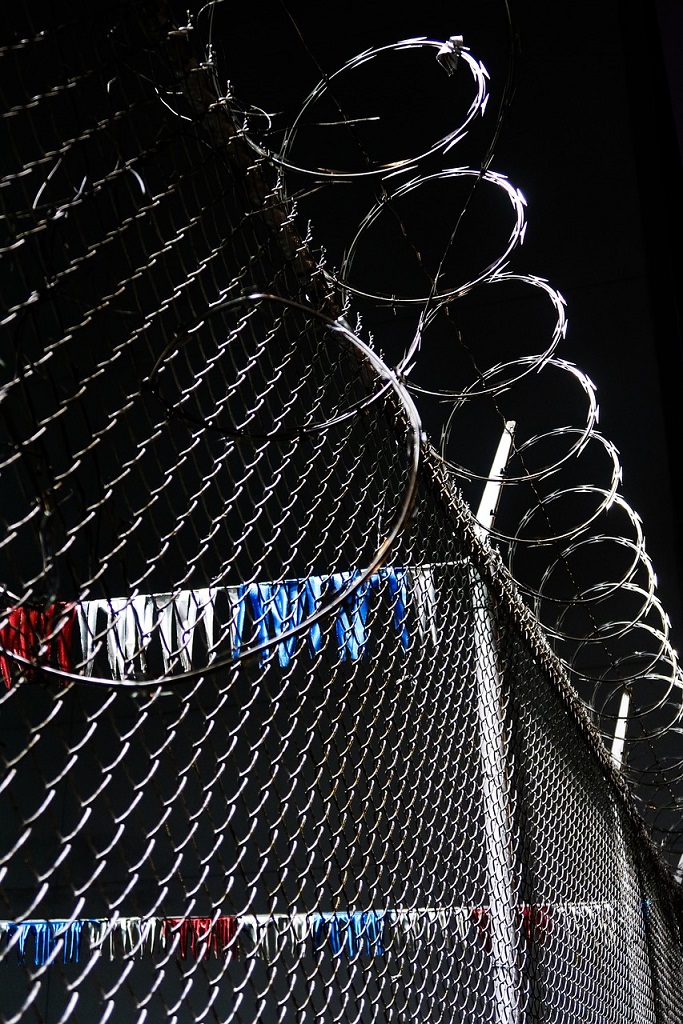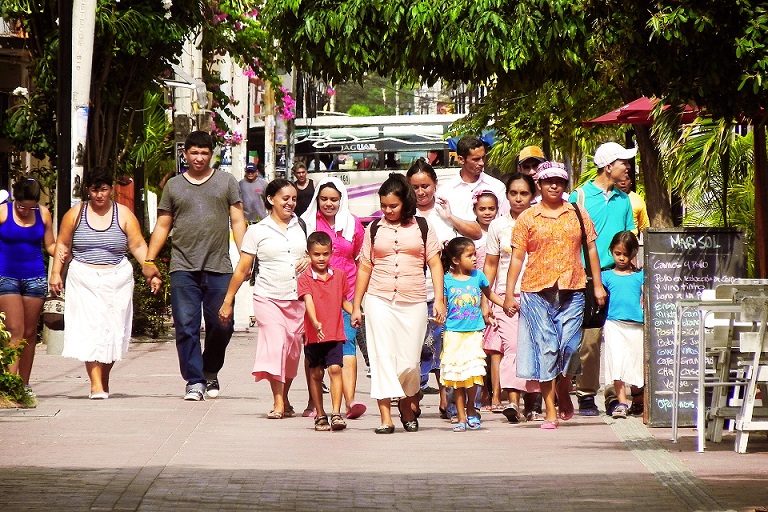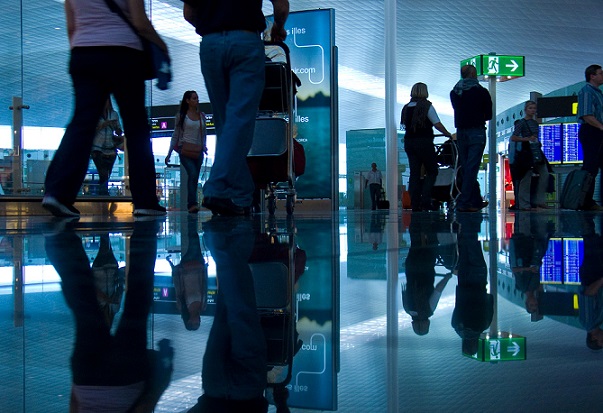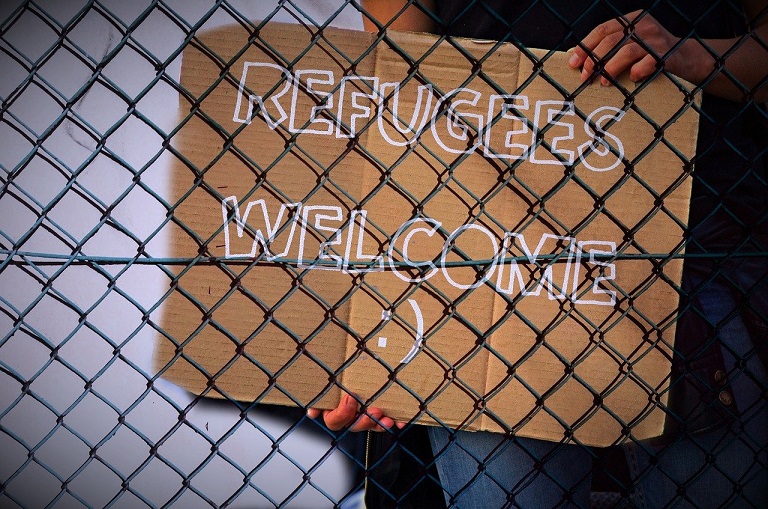The uncertainty about what their future will be in the North American country makes Salvadorans, who support more than a million of their compatriots with remittances, tremble. If they are expelled by Trump, if he wins, they will create an insoluble problem in El Salvador and will further complicate Bukele’s efforts to revamp the economy.
 Luis Beatón
Luis Beatón
According to the International Organisation for Migration (IOM) and the Salvadoran Central Reserve Bank (BCR), half of the Salvadoran nationals residing in the US are in irregular migratory status (49.9%).
The economic situation, lack of access to education and employment, violence and other structural and individual factors motivate people from all over the world, but mainly from Central American countries, to seek a new life in the northern nation or other countries in the region.
Oscar Picardo Joao, director of the Institute of Science, Technology and Research (ICTI) at the Francisco Gavidia University, believes that “the migration issue between El Salvador and the United States is very complex and has deep historical roots. There have been waves of diverse migration, above all linked to armed conflict, natural phenomena and earthquakes”.
President Nayib Bukele emphasised, as part of his election campaign, that El Salvador is on the road to reverse migration.
However, recent data from the US Bureau of Customs and Border Protection show that from January to September 2023, 37,506 Salvadorans were found to have entered the sout hern border irregularly.
Salvadorans constitute the third largest Hispanic population in the US, according to a Pew Research Center analysis of the US Census Bureau’s American Community Survey.
Statistics show that in 2000 there were 710,000 Salvadorans registered in the country, but by 2021 the figure had risen to more than 2.5 million people. In addition, the foreign-born Salvadoran population living in the United States grew by 147 per cent, from 540,000 in 2000 to 1.3 million in 2021, the study said.
 Joe Biden’s administration extended Temporary Protected Status (TPS) for 18 months to 300,000 people from El Salvador, Honduras, Nicaragua and Nepal; of the majority of beneficiaries, some 239,000 are Salvadoran, and for many of them this immigration protection changed their lives.
Joe Biden’s administration extended Temporary Protected Status (TPS) for 18 months to 300,000 people from El Salvador, Honduras, Nicaragua and Nepal; of the majority of beneficiaries, some 239,000 are Salvadoran, and for many of them this immigration protection changed their lives.
But that protection is due to expire in March 2025 under either Biden, in a new term in office, or Donald Trump, with his lethal anti-immigrant policies. Plaintiffs in US courts alleged in 2018 that Trump’s cancellation of TPS was unlawful because it was motivated by racism, in violation of the US Constitution, and was implemented arbitrarily. Despite the Biden administration’s pledge in court that the illegal conduct by which Trump ordered the cancellation of TPS “will not be reinstated” and that it will not “revert to the contrary policy of the previous administration”, the problem is there, in the streets and fields of the US.
If during his administration, even before, Trump considered migrants as criminals and rapists, many fear that if he returns to power his policy will be even more dire for those included in the illegal exodus.
 Faced with his constant announcements that if he returns to the White House he will initiate a mass deportation, many Salvadorans and other illegal immigrants are fearful for their future. Today, immigrants are at the centre of an issue that could affect the course of the 5 November elections in the United States, and the old theory that they are hostage to the elections in the northern nation is now more real.
Faced with his constant announcements that if he returns to the White House he will initiate a mass deportation, many Salvadorans and other illegal immigrants are fearful for their future. Today, immigrants are at the centre of an issue that could affect the course of the 5 November elections in the United States, and the old theory that they are hostage to the elections in the northern nation is now more real.
Biden, under the political pressure of an election year with a chaotic border and thousands of refugees in Democratic cities, is considering executive orders that would allow him, among other things, to close the border if the number of irregular crossings exceeds a certain number, conduct expedited deportations and tighten asylum criteria. Trump is making the border and immigration his central campaign issue to whip up his conservative base. Warnings of a “purge” of migrants, detention camps for undocumented immigrants and mass deportations are not empty threats.
The prescription that will be applied to immigrants, including Salvadorans, proposes the return of Title 42, the cancellation of TPS affecting 700,000 beneficiaries, the return of Zero Tolerance, the denial of citizenship to children born in the US to undocumented parents, and the imposition of an ideological test on visa applicants, among other measures.
 The proposals, part of the most conservative tendencies in think tanks such as the Heritage Foundation, will revolutionise the issue with initiatives that bypass Congress and the courts, and are specifically designed to dismantle the foundations of the immigration system, analyses by the Pew Research Center and others indicate.
The proposals, part of the most conservative tendencies in think tanks such as the Heritage Foundation, will revolutionise the issue with initiatives that bypass Congress and the courts, and are specifically designed to dismantle the foundations of the immigration system, analyses by the Pew Research Center and others indicate.
In a state of turmoil
Quoted by the pro-government Diario El Salvador, President Bukele recalled that relations were better during the administration of former Republican President Donald Trump. “It (the Trump administration) was much better. There was more interest on their part. In the last months of 2023, important figures in the Latin American area, including Brian Nichols, the Biden administration’s Under Secretary of State for Western Hemisphere Affairs, visited El Salvador.
However, the distancing of the Salvadoran authorities from the Biden administration creates doubts among many of their compatriots in light of Trump’s anti-immigrant agenda.
And even more so, when the main source of income for the Salvadoran economy in 2023 was remittances equivalent to around eight and a half billion dollars, most of which came from the United States.
 In general terms, it can be said that it is very difficult to stop the flow of migrants to the north and this will be achieved the day we have favourable welfare and security conditions and other important aspects for human development, Picardo told Prensa Latina.
In general terms, it can be said that it is very difficult to stop the flow of migrants to the north and this will be achieved the day we have favourable welfare and security conditions and other important aspects for human development, Picardo told Prensa Latina.
Nevertheless, family reunification will always be a critical factor that both local and US authorities have to consider as one of the essential elements in this migration phenomenon, he said. Under understandings between Washington and San Salvador until November 2023, some 8,600 Salvadorans, including women and men, have been granted work visas in the north. But that is barely a drop in the bucket compared to the river of illegal persons moving towards the southern US border. PL
(Translated by Cristina Popa – Email: gcpopa83@gmail.com) – Photos: Pixabay












.jpg)












